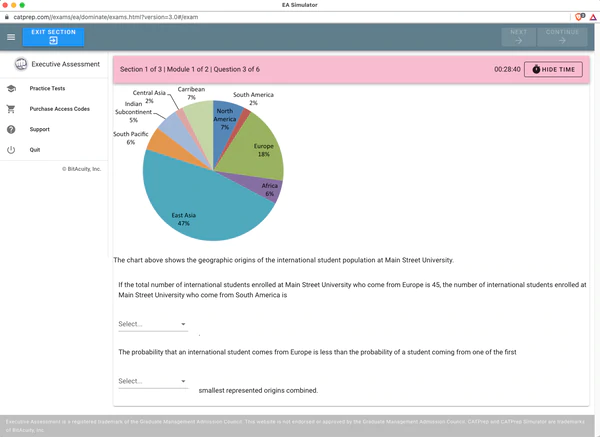When you’re looking to climb the corporate ladder or change careers, a master’s of business administration, or MBA, can be an attractive options. But the decision to pursue this type of education is one you don’t want to make without careful consideration. The degree can be a door-opener, but not always to the extent that prospective students think. Whether the MBA will be worth the time and expense depends on your situation, your goals and the program you choose.
Need. Just how useful will an MBA be in your career? The traditional program is designed for students who are several years out of a bachelor’s degree program and have some experience in the work world. The degree should, ideally, lead to a promotion or a better job, along with a significant salary bump. But it’s important to note that these students were typically already on a solid career trajectory and might have achieved these objectives even without the MBA. Career changers can often make the leap from a non-business career, such as teaching or journalism, to the corporate world with an MBA. And would-be entrepreneurs can meet potential business partners or financial backers among their MBA classmates.
School choice. Not all MBA programs are created equally. Wall Street investment banks and Fortune 500 companies are well known for taking seriously only MBA graduates whose degrees bear the seal of top programs such as the Wharton School at the University of Pennsylvania or the Kellogg School of Management at the University of Chicago. But not everyone has career goals that require such prestige. To get hired or promoted into some jobs, particularly in government, you may just need to be able to tick off a box that says you have a master’s degree. In that case, a respected local school or even an online program may b sufficient.
Finances. Dollars and cents are likely to determine where you pursue an MBA, and even whether such a degree is a viable path for you at all. Tuition and fees for high-end programs can easily reach six figures. Few programs can be completed for less than $15,000. If possible, get your employer to help out with the costs. Before you take on large student loans for an MBA, be sure of your likelihood of obtaining a higher salary upon graduation, one that will allow you to pay off the debts within a few years. Carefully investigate the placement rates and starting salaries for graduates of the program you want to enter.
Opportunity cost. There’s more than money to think about when pondering whether an MBA will be worthwhile for you. A full-time program could take a year or two to complete. That’s time when you could have been working, earning money, gaining experience and even getting promoted. Even part-time or online programs entail opportunity costs, as that’s still time you could have been putting into your full-time job, a part-time position or an entrepreneurial venture.
Accreditation. MBA programs can have any of several types of accreditation. In the United States, approval from the Association to Advance Collegiate Schools of Business, or AACSB, is the gold standard accreditation, and the one that major corporate employers are likely to demand. Another national accreditation, respected but without the same level of prestige as AACSB, is that of the Association of Collegiate Business Schools and Programs, or ACBSP. Still other schools have accreditation from the national Distance Education and Training Council, and some have no accreditation. Before you start any program, find out what accreditation is required by the organizations where you’d like to work.
Obtaining an MBA takes large amounts of time, effort and money. If you decide it’s a degree that will help you achieve your goals, think carefully about where and how to pursue it. Choosing the right school can help you to get the most out of your education and minimize the debt you have to take on to complete it.
CATPrep is pleased to publish this guest post by Ranlyn Oakes


